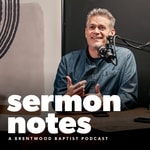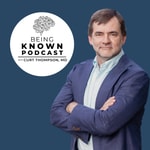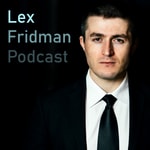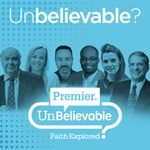The Biblical Mind – Détails, épisodes et analyse
Détails du podcast
Informations techniques et générales issues du flux RSS du podcast.
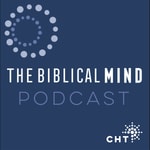
The Biblical Mind
centerforhebraicthought
Fréquence : 1 épisode/12j. Total Éps: 100

Classements récents
Dernières positions dans les classements Apple Podcasts et Spotify.
Apple Podcasts
🇨🇦 Canada - philosophy
04/08/2025#37🇬🇧 Grande Bretagne - philosophy
04/08/2025#19🇺🇸 États-Unis - philosophy
04/08/2025#20🇨🇦 Canada - philosophy
03/08/2025#25🇬🇧 Grande Bretagne - philosophy
03/08/2025#23🇩🇪 Allemagne - philosophy
03/08/2025#87🇺🇸 États-Unis - philosophy
03/08/2025#17🇨🇦 Canada - philosophy
02/08/2025#34🇬🇧 Grande Bretagne - philosophy
02/08/2025#29🇩🇪 Allemagne - philosophy
02/08/2025#66
Spotify
Aucun classement récent disponible
Liens partagés entre épisodes et podcasts
Liens présents dans les descriptions d'épisodes et autres podcasts les utilisant également.
See all- https://www.holypost.com/
416 partages
- https://bsky.app/profile/hebraicthought.org
55 partages
- https://bibleproject.com/
54 partages
- https://www.twitter.com/HebraicThought/
28 partages
- https://www.twitter.com/HebraicThought
25 partages
- https://twitter.com/mikeeisenberg
8 partages
Qualité et score du flux RSS
Évaluation technique de la qualité et de la structure du flux RSS.
See allScore global : 58%
Historique des publications
Répartition mensuelle des publications d'épisodes au fil des années.
Why Does Church Matter? Learning from Jazz (Mark Glanville)
Épisode 174
mercredi 24 avril 2024 • Durée 38:51
Quotes from this episode: "With the Bible in our hands, it's time to improvise church again and to see what the spirit is calling us to and how the spirit is opening wide our imagination for what the church can be today."
"We're doing a bit like what jazz musicians do. We immerse in the biblical story and we improvise on that biblical story, the Bible in our hand."
"Church is a conversation. Communities that are able to have conversations is really important. We can talk about anything. We can talk about the sermon together. We can talk about pressing issues facing our community, facing our neighborhood that we can get involved with."
In this episode:
— Introduction and Setting the Stage
— Conceptual Hurdles and the Need for Fresh Imagination
— Improvising on the Tradition: Learning from the Biblical Story
— Being Rooted in the Neighborhood: Leadership and the Role of Every Member
— The Challenges of Size: Can Large Churches Safely Improvise?
— Local Aesthetics and the Physical Space of Worship
When No One Reads Books Anymore
Épisode 173
samedi 2 mars 2024 • Durée 54:11
Byron Borger, owner of Hearts and Minds Bookstore speaks with Dru Johnson about literacy, theology, and the need for bookstores to cultivate the Christian imagination.
AI Generated Takeaways
—The decline in reading and literacy rates among Americans is a concern, particularly among younger generations. —Books play a crucial role in personal growth and Christian discipleship, expanding one's understanding of the world and deepening their faith. —The power of books to inspire imagination and critical thinking is essential for engaging with complex texts, including the Bible. —Wise book recommendations that consider individual interests and readiness are important for fostering a love of reading. —Christian publishing has seen trends towards ecumenical reading, contemplative spirituality, and a commitment to social justice. Christian books should go beyond self-help and focus on worldview formation and the lordship of Christ over the life of the mind. —Christian bookstores should offer diverse book categories to cater to different interests and needs. —The rise of online marketing and the influence of Amazon have changed the publishing industry, with authors now expected to promote their own books. —Supporting local bookstores is important to maintain a human connection and receive personalized recommendations. —Physical spaces like bookstores and libraries provide opportunities for serendipitous discoveries and foster lifelong learning. —Lifelong learning is a distinctively Christian act that can be seen as an act of worship and a way to practice the presence of God.
Is ’Systemic Injustice’ Biblical? (Michael Rhodes)
Épisode 164
vendredi 9 juin 2023 • Durée 46:55
Terms like "systemic sin" or "structural injustice" immediately make many people think of contemporary ideologies that they either strongly embrace or strongly oppose, such as socialism or the much-discussed (but poorly understood) critical race theory. These charged terms are often employed in vague or unhelpful ways.
The Bible has many examples of sin and injustice that are not purely individual—of evil that is bigger than the sum of the evildoers, and iniquity that reverberates through generations. How can we think more clearly and biblically about the nature of evil and injustice? Sin is many things in Scripture: an action, an identity, an agent or power, and the brokenness of structures and systems. People err when they don't grasp the Bible's full, complex picture of sin.
Michael Rhodes (PhD, Trinity College Bristol/University of Aberdeen) is a Lecturer in Old Testament at Carey Baptist College. He is an ordained minister in the Evangelical Presbyterian Church, author of Formative Feasting: Practices and Virtue Ethics in the Deuteronomic Tithe Meal and Corinthian Lord’s Supper (2022), and co-author of Practicing the King’s Economy: Honoring Jesus in How We Work, Earn, Spend, Save, and Give.
Show notes:
- 00:26 Unjust kings don't act alone; the state is more than the sum of its parts
- 06:46 The positive side: people were created to be mediators of God's blessing
- 12:34 English hides the second-person plural
- 14:32 The structures of society create incentives and disincentives for behaviors
- 15:38 Intergenerational sin in Scripture
- 18:14 People's inconsistent resistance to the idea of systemic injustice and sin
- 22:49 What is sin? It's both individual and communal, personal and systemic
- 31:10 Is this leaning toward socialism or critical race theory?
- 41:06 Cornel West for president?
- 41:56 Exercising power faithfully in different kinds political, economic, and cultural contexts
- 43:48 Paradigmatic depictions of God's kingdom should be announced and emulated in the church
Show notes by Celina Durgin
Technology Isn’t a Neutral Tool (Jason Thacker)
Épisode 163
lundi 5 juin 2023 • Durée 39:11
From social media, to the printing press, to artificial intelligence, to the pencil, technologies have often been regarded as things that can't be good or bad apart from how people choose to use them. Jason Thacker doesn't think any technology is merely a neutral tool, because as people use technology to shape the world, it also shapes them and their culture.
Jason Thacker serves as an assistant professor of philosophy and ethics at Boyce College in Louisville, KY. He also is a research fellow in Christian ethics and director of the research institute at The Ethics and Religious Liberty Commission of the Southern Baptist Convention. He is the author of several books including Following Jesus in the Digital Age and The Age of AI: Artificial Intelligence and the Future of Humanity.
He is a graduate of The University of Tennessee in Knoxville, where he earned a Bachelor of Arts in Communication Studies. He also holds a Master of Divinity from The Southern Baptist Theological Seminary, where he is currently a PhD candidate in ethics, public theology, and philosophy.
Show notes:
- 00:26 What is technology?
- 04:25 Jacques Ellul on "technique" and how technology forms us
- 08:19 Two views of technology: instrumentalist and deterministic
- 16:05 Optimism, pessimism, and realism about technology
- 22:27 Some tools don't have good uses
- 28:23 A biblical theology of technology?
- 31:54 Technology and the vulnerable
Show notes by Celina Durgin
ICYMI: How ’Christianese’ Is Like Corporate Jargon (Valerie Hobbs)
Épisode 73
vendredi 5 mai 2023 • Durée 33:15
This episode was originally published in May of 2021. We thought it was worth a reissue for our newer listeners. A new episode is coming next week.
Why do we say "come to Jesus"? This Christianese phrase doesn't just show up in church—it shows up in offices, homes, and schools around America, where we speak of "come-to-Jesus moments." What about words like "community" or "intentional"? Do we even know what those words mean? Unless we attend to our words and try to express our thoughts more carefully, our religious language can end up thin, impotent, and laden with clichés.
In this episode, Dru Johnson talks to Dr. Valerie Hobbs, a Senior Lecturer and linguist at the University of Sheffield. Dr. Hobbs specializes in the construction, use, and progression of religious language in contemporary discourse. They discuss the definitions and origins of religious language and Christianese, and how they can be distinguished from simple "in-group" or technical language. Then, they consider how our most powerful (or just persistent) ideas about death, God, and spirituality find their way out of the church and into corporate discourse, or vice-versa. They conclude with remarks on how to think about prayer, apologizing, and even the idea of racial reconciliation, to help us choose better words and think more deeply.
Show notes:
- 0:00 Defining “religious language” and "Christianese"
- 2:18 How religious language is constructed
- 4:26 The difference with in-group language
- 6:37 Religious language in the secular world
- 9:27 Corporate discourse and our values
- 13:25 Where we get our Christianese clichés
- 19:09 Learning how to express our experiences
- 23:43 Becoming sensitive to the way we speak
- 26:47 Apologizing
- 29:30 The problem with terms like "racial reconciliation"
Learn more about Valerie Hobbs and her work.
Her most recent book, An Introduction to Religious Language
Show notes by Micah Long.
Credits for the music used in TBM podcast can be found at: hebraicthought.org/credits.
ICYMI: Jesus Shows That God and Humans Are a Good Match (Lucy Peppiatt)
Épisode 75
vendredi 28 avril 2023 • Durée 32:52
This episode was originally published on May 5, 2021. We thought it was worth a reissue for our newer listeners.
"It was most fitting for God to come save the people he made in the first place," says Dr. Lucy Peppiatt, Principal at Westminster Theological Centre.
The early church loved to discuss the "fittingness of the Son to become human," because it implies that God has a passion for man. He purposed from the beginning of time that He would come to save us, as one of us, and that means that there is something about humans that is fitting to be united with God. And that is the gospel.
In this episode, Dr. Dru Johnson and Dr. Peppiatt talk all about Jesus of Nazareth: Who was he? Who did people think he was? Why did he teach and present himself indirectly rather than just revealing himself to man? Dru and Dr. Peppiatt address challenging questions about the hiddenness of God in Christ, the incarnation, the union of the divine and the human in the Son, and more.
Show notes:
- 1:55 Why didn’t Jesus reveal himself to man while he was on Earth?
- 5:24 Athanasius of Alexandria on Jesus
- 7:13 Wrestling in the church: Jesus intellectually reasoned with us
- 15:40 Is there value to the struggle?
- 19:50 Is there something human about God?
- 24:37 Impoverished theology
Show notes by Serena Tuomi.
Credits for the music used in TBM podcast can be found at: hebraicthought.org/credits.
What the Image of God Is and Is Not (Carmen Imes)
Épisode 162
vendredi 21 avril 2023 • Durée 43:22
You might have heard that being made in the image of God refers to human rationality, relationality, moral agency, or some combination of these qualities. Dr. Carmen Imes disagrees.
She and Dru discuss what they think the author of Genesis was actually referring to with the phrase "image of God," in light of Carmen's latest book Being God's Image: Why Creation Still Matters (forthcoming in June, 2023). Along the way, they discuss artificial intelligence, the resurrection and renewal of creation, and why Eve should have been more assertive.
Carmen (PhD in Biblical Theology, Wheaton College) is Associate Professor of Old Testament at Biola University. She is also the author of Bearing God’s Name: Why Sinai Still Matters. Carmen is an active member of the Evangelical Theological Society, the Institute for Biblical Research, the Society of Biblical Literature, and the Canadian Society of Biblical Studies. Carmen keeps a blog called Chastened Institutions and releases weekly Torah Tuesday videos on her YouTube channel.
- 00:25 Rediscovering the biblical doctrine of the Imago Dei
- 08:47 "Male and female he created them"
- 12:17 The importance of the body
- 17:38 Eve wasn't too bossy—she wasn't assertive enough
- 20:18 Artificial intelligence and ChatGPT
- 28:08 Abdication of creation care and the renewal of the earth
- 38:02 Implications for how we should treat people
Show notes by Celina Durgin
This episode's music was generated by artificial intelligence.
Understanding the Slaughter of the Canaanites in the Book of Joshua (Paul Hinlicky)
Épisode 161
vendredi 7 avril 2023 • Durée 32:29
Herem warfare is the commandment to exterminate all survivors. The law of herem warfare appears in the Book of Joshua and contravenes the usual motivations for going to war in the ancient Near East. Armies in that context typically killed only males and took women, children, and possessions before turning the conquered nation into a subjugated satellite nation. The law of herem warfare, on the other hand, forbade enslavement and required that all be killed.
Dru and Paul R. Hinlicky discuss this topic and more within the Book of Joshua. Dr. Hinlicky wrote Joshua for the Brazos Theological Commentary on the Bible series.
Dr. Hinlicky (PhD, Union Theological Seminary, 1983) is an internationally known theologian who has published more than seventy articles and many books. He teaches theology at Roanoke College in Salem, Virginia. He is an authority on the theology of Martin Luther and how Luther's theology played out in history since the time of the Reformation.
Show notes:
- 00:26 Why don't we hear many sermons on the Book of Joshua?
- 02:55 The context of "be strong and courageous"
- 10:39 Herem warfare—does God command genocide?
- 15:17 The plan of herem warfare fails
- 25:32 The theological emphasis of the Book of Joshua
Show notes by Celina Durgin
Is It Time to Quit ’Quiet Time’? Discussing Our View (Dru Johnson & Celina Durgin)
Épisode 160
mardi 28 mars 2023 • Durée 28:05
Instead of interviewing a guest, TBM host Dru Johnson and editor Celina Durgin discussed an article they co-wrote for Christianity Today: "Is It Time to Quit 'Quiet Time'?"
Many people read their Bibles on their own, and some do so daily. When combined with communal study, some form of this practice is important for anyone wanting to become fluent in Scripture. However, private Bible-reading can go wrong. It can be fragmented, individualistic, uninformed, and essentially passive. It can be impotent or even deleterious for readers whose misunderstandings go uncorrected and who don't apply true biblical principles to life.
At its most distinctive, the "quiet time" ritual of private prayer, listening, and devotional Bible-reading is an artifact of Western culture from the last 150 years. Dru and Celina explored the history of this practice in an article in Christianity Today, published online and slated to appear in the April print edition.
They concluded that the form quiet time often takes is not conducive to Bible literacy and can actually compound misunderstanding over time. It can even be an empty ritual that Christians perform to feel pious while failing to do justice, love mercy, and walk humbly with their God.
If you're a regular listener, you can probably guess that Dru and Celina favor community-based solutions to this problem.
Dru hosts The Biblical Mind podcast, directs the Center for Hebraic Thought, and is an Associate Professor of Biblical and Theological Studies at The King’s College in New York City.
Celina is the Editor of The Biblical Mind magazine and podcast. She was previously an editorial fellow at a political magazine in New York, and then, after graduate school, worked in the editorial department of a marketing company in downtown Boston. Some of her written work can be found in Christianity Today.
Show notes by Celina Durgin
Women in the Early Church (Nijay Gupta)
Épisode 159
vendredi 24 mars 2023 • Durée 01:03:37
This episode was originally published by OnScript podcast. Thanks to the OnScript team for letting us share this episode with our listeners. Here are the OnScript show notes for this episode:
Episode: The book we’re talking about today is Tell Her Story: How Women Led, Taught, and Ministered in the Early Church with IVP Academic. In this episode, we explore the data about women in Scripture and antiquity including ideas such as women’s leadership is an exception that relies upon the norm of male leadership, persistent myths about women in the Roman empire, and the hotly contested passages in Paul.
Guest: Dr. Nijay Gupta is Professor of New Testament at Northern Seminary. He has written over 21 books, including commentaries on Colossians, Thessalonians, and Philippians. He’s written 15 New Testament Words of Life: A New Testament Theology for Real Life (Zondervan), A Beginner’s Guide to New Testament Studies: Understanding Key Debates (Baker Academic), and Tell Her Story: How Women Led, Taught, and Ministered in the Early Church (IVP Academic), discussed in this episode. He has also written several books helping scholars research, write, and get a sense of the field of NT studies. These include The Writer: A Guide to Researching, Writing, and Publishing in Biblical Studies (Cascade) and Prepare, Succeed, Advance: A Guidebook for Getting a PhD in Biblical Studies and Beyond (2nd ed.; Cascade).
